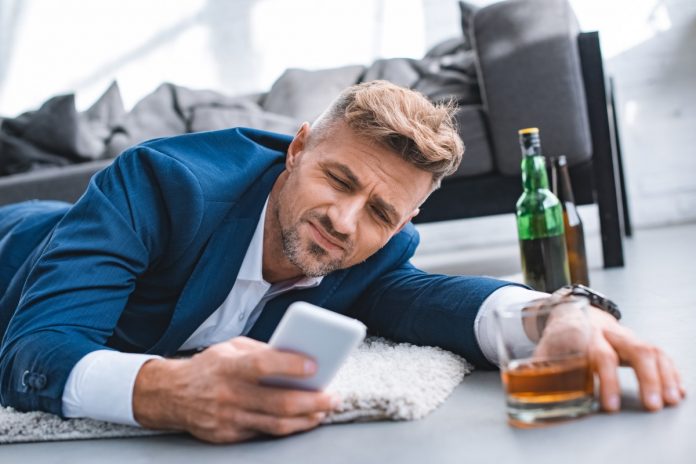Remember that time you were out with some friends and tripped on a curb, but it definitely had nothing to do with the fact that you’d been drinking all night because you’re just clumsy all the time? Your phone knew it was the booze.
But imagine if instead of just sitting there in your pocket quietly judging you and your life choices, your phone could’ve automatically warned you to not have that last drink.
Public health researchers explored that prospect in a proof-of-concept study published Tuesday in the Journal of Studies on Alcohol and Drugs, concluding that the same kind of smartphone technology that makes it possible to get directions and find stars in the night sky could also be used for a kind of drunk radar app that analyzes how a user walks for signs of inebriation.
All jokes aside, researchers say drunk-monitoring apps could be a crucial tool to help people fight alcohol addictions and to reduce dangerous behaviors like drunk driving.
“I’ve worked over 15 years in busy urban emergency departments, I see a lot of individuals with alcohol-related injuries,” said Brian Suffoletto, a doctor and Stanford University School of Medicine professor who led Tuesday’s study and has researched tech-centric public health interventions for years. “I think the field of remote sensing of intoxication is very, very important.”
Suffoletto’s latest work focused on data pulled from a key component of modern smartphones called accelerometers, tiny sensors that enable a phone to know which direction it’s pointed and how fast it’s moving.
In the study, conducted at the University of Pittsburg before Suffoletto moved to Stanford, the researchers strapped a smartphone to the backs of 22 adults, loaded them up with vodka and then had them walk a straight line every hour for the next few hours. They then analyzed the data from the smartphone sensors and found that they could use changes in the data – say, an indication that somebody slipped off the line – to show when the participants were drunk above the legal limit to drive.
While there are already a variety of apps that let users estimate how drunk they are or block themselves from sending an ill-advised 3 a.m. text, those apps don’t automatically look for signs of intoxication the way the study showed accelerometers can.
“Sensors have been in smartphones since really the inception of the smartphone, but we’re just learning how to tap into those sensors,” Suffoletto said. “It seems like these apps should’ve already been commercially available, but the science around how you do that is just really being understood now.”
The researchers cautioned that Tuesday’s study was only a preliminary effort at using phone data to gauge intoxication. The study had a number of limitations, namely a small sample size and an extremely controlled environment.
“If somebody’s dancing in a bar, or moving around obstacles, then we have to see how it functions there,” Suffoletto said.
Still, the researchers said apps that automatically tell the user they’re getting drunk could help people who struggle with alcohol addiction long after they’ve left a support group meeting or counseling session.
“No matter how magical or persuasive you thought you were, it loses some of its oomph in the real world,” Suffoletto said. “It always struck me that if we can identify those situations in the real world, then we can deliver the support that’s needed.”
That support, he said, could simply take the form of phone alerts that list strategies to stop drinking when the app spots the first signs of intoxication.
In the meantime, more research is needed on how to firmly establish changes in the walking data with drunkenness. For example, Suffoletto’s team is already analyzing data from people who drank and then walked with their phone in their hands or in a shirt pocket, while they also plan to study larger sample sizes.
There is still an open question of whether any tech companies would even want to bother with developing these kinds of apps, a challenge Suffoletto acknowledged would be hard to overcome.
“To be totally honest, I think it’s very difficult to find companies to support tools for public health,” he said. “If there is not a vast amount of money to be made, people are generally less interested.”
Moreover, giving tech companies the power to automatically gather and analyze sensitive data on people’s drinking habits would come with all sorts of privacy concerns that would have to be addressed.
“I’m interested in courting companies that are interested in developing this further, but I think we just need to be careful about how it’s actually applied in the world,” Suffoletto said.





























